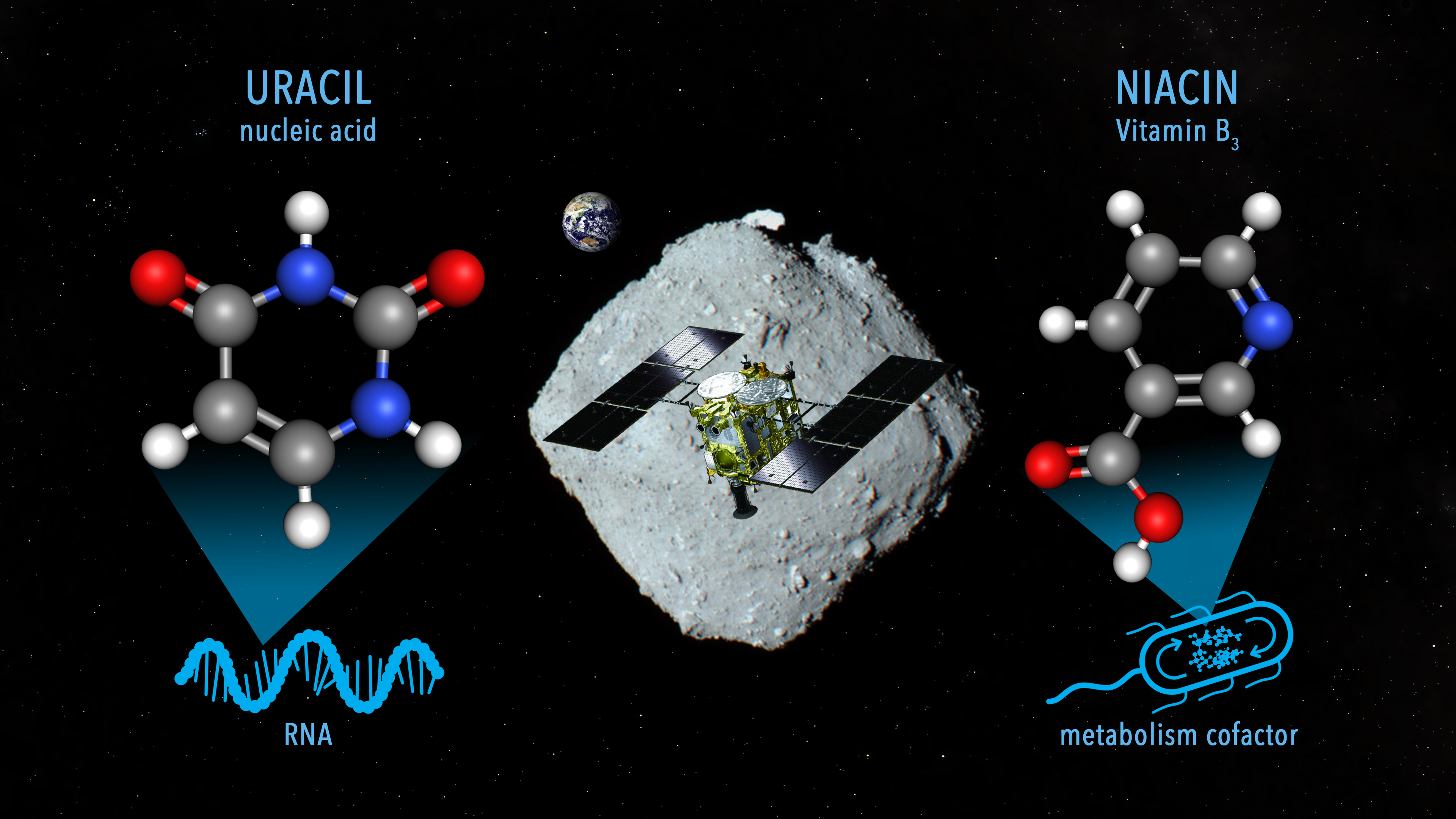
Researchers have analyzed samples of the asteroid Ryugu collected by the Japanese Space Agency’s Hayabusa2 spacecraft and found uracil, one of the informational units that make up RNA, the molecules that contain the instructions for how to build and operate living organisms. Nicotinic acid, also known as Vitamin B3 or niacin, which is an important cofactor for metabolism in living organisms, was also detected in the same samples.
This discovery by an international team, led by Associate Professor Yasuhiro Oba at Hokkaido University, adds to the evidence that important building blocks for life are created in space and could have b...
Read More







Recent Comments